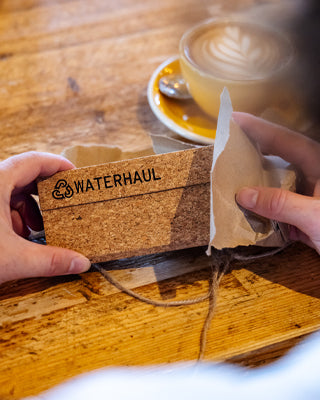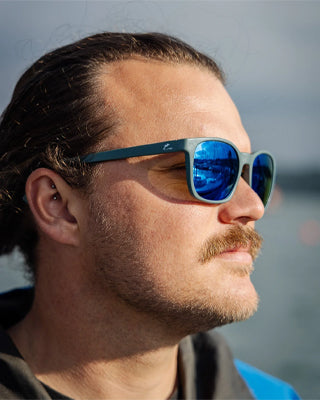Recycling COVID-19's Plastic Pandemic
WATERHAUL STORIES

Retask the Mask: Turning the Tide on the Plastic Pandemic
I don’t know about you, but the COVID-19 pandemic has felt like a bit of a time warp. Since early 2020 the world has seen unprecedented action. We saw whole countries imposing strict lockdowns, restricting who you were allowed to see and how many times you were allowed outside to exercise. We were told to stay at home to protect ourselves and those around us, face coverings became mandatory, loss was felt across the world and everyone kept wondering if and when it was ever going to end.
For the planet, the research shows that there were some positive environmental impacts as a result of the pandemic. As the COVID-19 virus swept across world, countries were forced into lockdown, travel restrictions were imposed and many people started to work from home. As a result, during the height of the pandemic, we saw areas with reduced air pollution and GHG emissions, lower water and noise pollution and some areas even started to show environmental recovery due to reduced human pressures from tourism and human use.
On the other hand, however, we saw the emergence of a plastic pandemic through increased need to medical PPE, mandatory face coverings and nitrile glove use. Over the past ten years, the world seems to have been making important and necessary steps forward to tackle to ever increasing problems of plastic pollution, but during the pandemic this was lost as we faced a more immediate threat to human health.

As the pandemic took hold, we started noticing single-use masks everywhere in the environment around us
Globally, during the height of the COVID-19 outbreak, 129 billion single use, surgical facemask were used each month, and it was estimated that 1.5 million of them would end up in the ocean. The pandemic took the world by surprise and as a result we had to act as fast as we could. As we faced PPE shortages, securing more became the main focus and there was no attention paid to what would happen to all the additional PPE once it had reached the end of its very short active life.
We started recycling fishing nets because we realised it was the plastic pollution that no-one was talking about, and it is a similar story for how we began recycling facemasks. When we started finding them washing up on our local beaches we realised that something needed to be done about the huge amount of PPE that was being produced and subsequently thrown away, and we were uniquely placed to do that.
During the pandemic, the Royal Cornwall Hospital Trust (RCHT) found that is was using over 3200% more masks per day compared to in 2019. They were determined to find a way to tackle this growing problem and so invested in a machine to melt the masks down into blocks. The melting process fully sterilises the material making it safe to be used as a raw material for new products.

Each block of melted down PPE becomes the raw material we need to make new, recycled litter pickers
The partnership between us here at Waterhaul and the RCHT means that not only do we slow the stream of plastic into the environment but it also saves the NHS money. It normally costs the RCHT over £500/tonne to incinerate this plastic waste.
As we went in and out of various lockdowns, something else we noticed really resonated with people was how much we all valued being able to get outdoors. We saw more than ever before, how doing good for others or the environment helps us to feel good ourselves. Our recycled litter pickers tick all the ‘feel good’ boxes by reducing the plastic waste problem through being made from 100% recycled plastic, and because their use is to get us outside to help the environment around us.

Rescources:
Rume and Islam, 2020
Zowalaty et al., 2020
Royal Cornwall Hospital NHS Trust
10% OFF YOUR FIRST ORDER
Join our NETwork for events, all things ocean conservation and exclusive private sale launches


